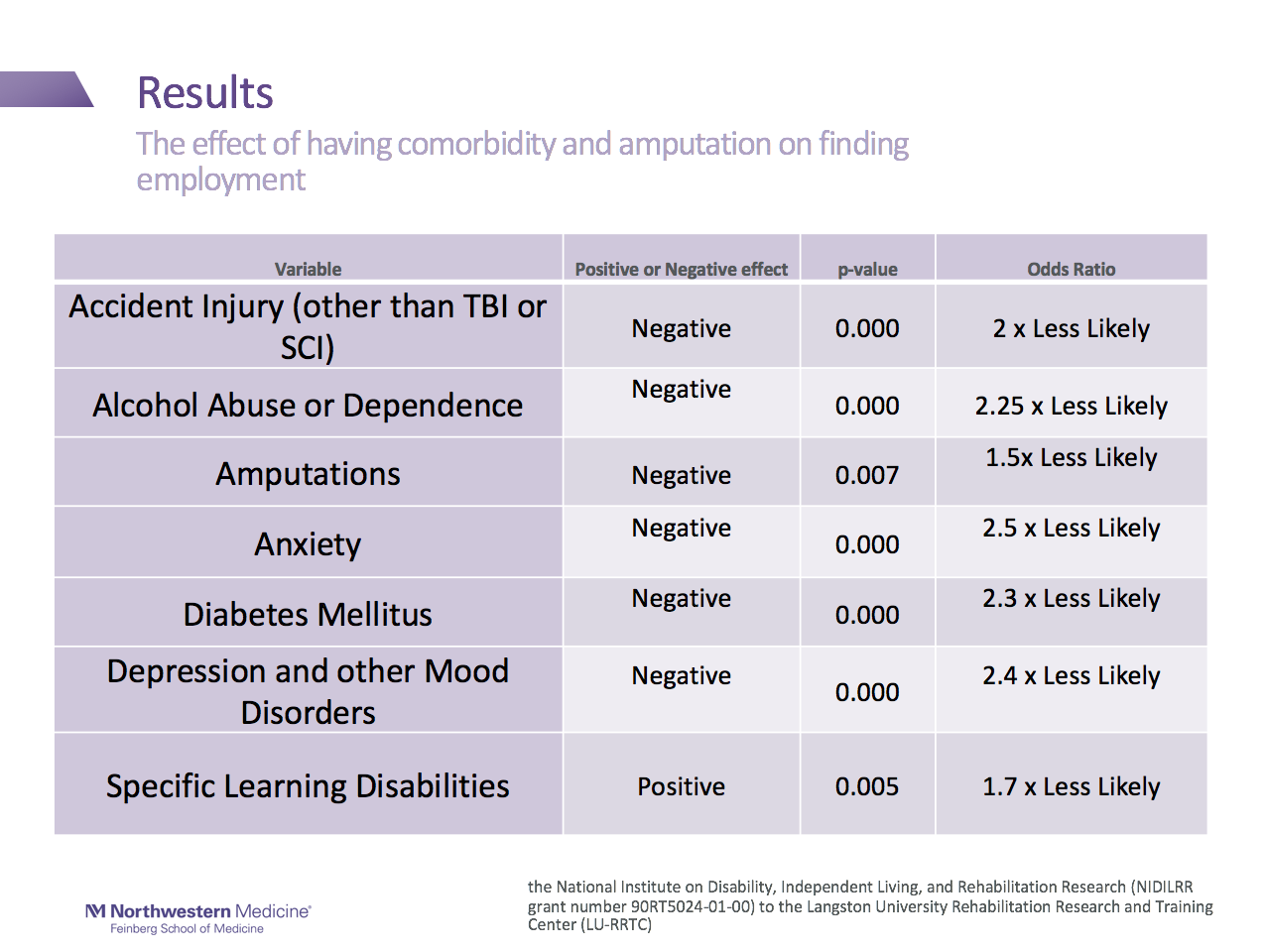Presenting Author:
J. Chad Duncan, Ph.D.
Principal Investigator:
J. Chad Duncan, Ph.D.
Department:
Physical Medicine and Rehabilitation
Keywords:
Amputation, Vocational Rehabilitation, Comorbidity, Employment
Location:
Third Floor, Feinberg Pavilion, Northwestern Memorial Hospital
PH38 - Public Health & Social Sciences
The effect of having comorbidity and amputation on finding employment
Vocational Rehabilitation (VR) services provide services to individuals with various disabilities who need assistance in obtaining gainful employment. These services are administered through state vocational rehabilitation programs and through the Veterans Affairs Vocational Rehabilitation and Employment program. People with amputation can receive funding for prosthetic care through VR services when it assists the individual in obtaining employment and aids them in meeting the essential skills of that occupation. In this scenario, prosthetic care is administered by certified prosthetists in collaboration with the rehabilitation counselor assigned to the individual’s case. VR services are provided in all fifty states and records for each individual case are combined into a national database (RSA-911). RSA-911 data contains each person’s demographics, type of disability (e.g. amputation), all services provided through VR, the cost of those services, and employment outcomes. Therefore, the RSA-911 database provides a national sample with relevant outcome measures (e.g. employment) that could be used to demonstrate the effectiveness of prosthetic care to third party payers. The purpose of this research was to define the effect of comorbidities and amputation through VR services on employment outcomes. This research was funded by The National Institute on Disability, Independent Living, and Rehabilitation Research (NIDILRR grant number 90RT5024-01-00) to the Langston University Rehabilitation Research and Training Center (LU-RRTC)

